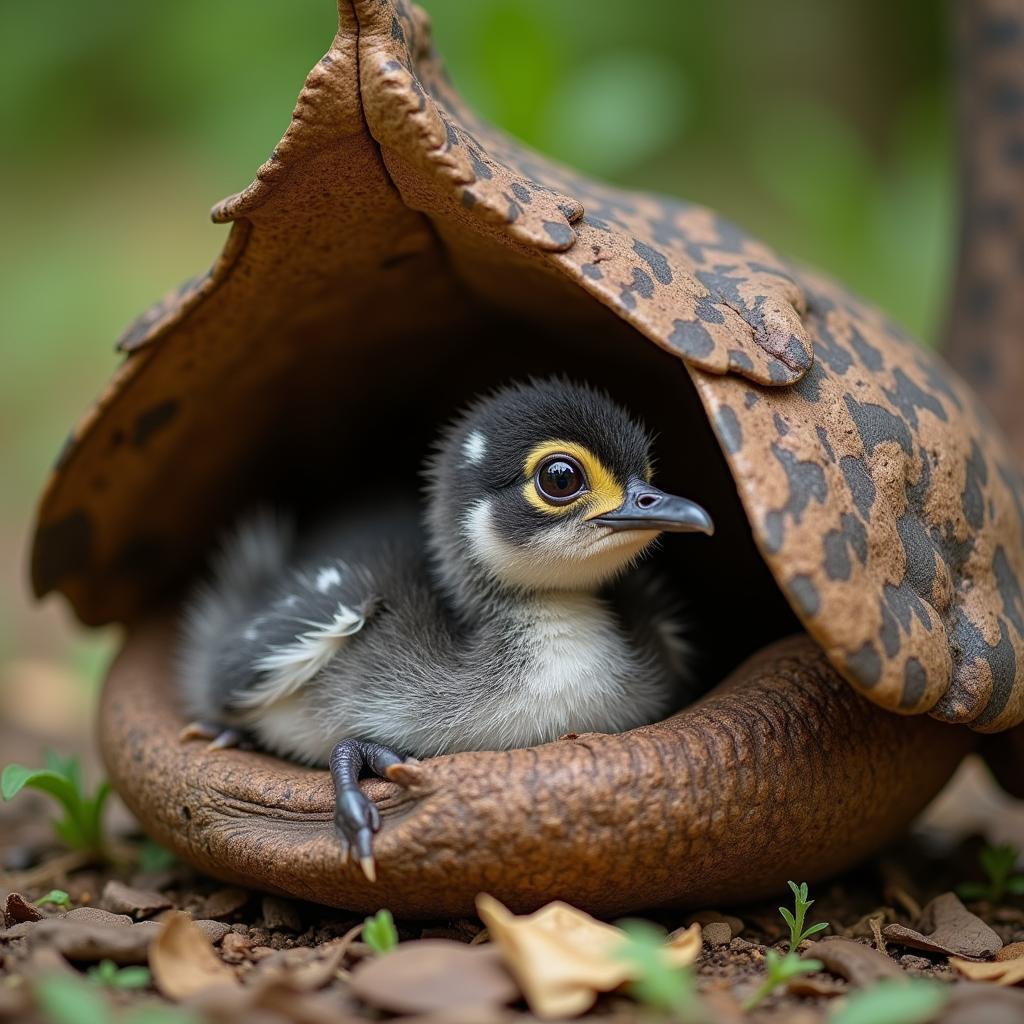African Jacana Birds and Their Remarkable Nesting Habits
African jacana birds, also known as lily trotters or Jesus birds, are a captivating sight to behold on the tranquil waters of sub-Saharan Africa. These unique birds, with their striking plumage and elongated toes, are renowned for their fascinating nesting habits that challenge traditional gender roles in the avian world.
The Unconventional World of African Jacana Birds
African jacanas exhibit a fascinating example of polyandry, a rare mating system where a single female mates with multiple males. This unusual social structure is directly linked to their remarkable nesting habits. The females, larger and more vibrantly colored than their male counterparts, establish and defend territories encompassing a cluster of floating nests, often built on lily pads or other aquatic vegetation.
The Male’s Role: Dedicated Fathers and Nest Builders
The smaller, less conspicuous males are tasked with the meticulous construction of these floating nests. Using their beaks, they diligently gather and weave together aquatic plants, creating a stable platform for their eggs. Once the nest is complete, the female will select a mate and lay her clutch of eggs, typically three to four.
Raising Young: A Shared Responsibility
After the eggs are laid, the male takes on the primary responsibility of incubation, carefully regulating the temperature and humidity of the eggs. This dedicated paternal care extends beyond hatching, as the male continues to brood and protect the chicks, shielding them from predators and the elements.
“It’s truly remarkable to witness the unwavering commitment of male African jacanas to their offspring,” shares Dr. Anya Okoye, an ornithologist specializing in African bird species. “Their dedication to nest building, incubation, and chick-rearing allows the females to focus on their role as territorial defenders and ensures the survival of their young in the face of environmental challenges.”
 African Jacana Chick Being Brooded
African Jacana Chick Being Brooded
Adapting to Life on the Water: Unique Physical Characteristics
The remarkable nesting habits of African jacanas are complemented by their unique physical adaptations that allow them to thrive in their aquatic habitat. Their elongated toes, resembling spindly fingers, distribute their weight evenly, enabling them to walk and forage for food on floating vegetation without sinking. This ability has earned them the moniker “lily trotters” or “Jesus birds,” referencing their seemingly miraculous ability to walk on water.
Conservation Status: Thriving in Protected Areas
The conservation status of African jacanas is currently listed as “Least Concern,” indicating that their populations are relatively stable. However, like many species, they face threats from habitat loss due to human activities such as wetland drainage and pollution. Conservation efforts focused on protecting wetland ecosystems are crucial to ensuring the continued survival of these captivating birds and their extraordinary way of life.
FAQs about African Jacana Birds and Their Nests:
-
What do African jacana birds eat? African jacanas primarily feed on insects, small fish, and aquatic invertebrates, which they skillfully snatch from the water’s surface or pick off floating vegetation.
-
How long do African jacana chicks stay with their fathers? The chicks are capable of swimming and feeding themselves shortly after hatching, but they remain under the watchful care of their fathers for several weeks, learning essential survival skills.
-
Where can I see African jacana birds in the wild? African jacanas are commonly found in wetlands, lakes, and slow-moving rivers throughout sub-Saharan Africa. Protected areas such as national parks and wildlife reserves offer excellent opportunities to observe these fascinating birds in their natural habitat.
Explore More:
- Learn about the African girls fight for education and equality.
- Discover the beauty and significance of African American Mothers Day Cards.
- Explore the challenges and triumphs reflected in African American statistics 2017.
For any inquiries or assistance regarding African wildlife and conservation efforts, please contact us at:
Phone Number: +255768904061
Email: kaka.mag@gmail.com
Address: Mbarali DC Mawindi, Kangaga, Tanzania.
Our dedicated customer support team is available 24/7 to assist you.

